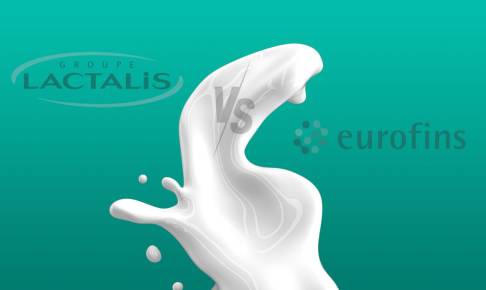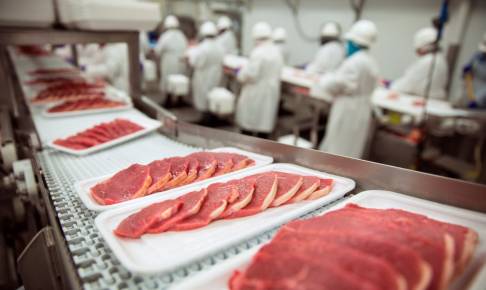Cotecna tackles the giants of the food testing market
How Neotron, a prominent Italian food testing laboratory, is becoming part of the growth strategy of the Swiss inspection and certification company.
Cotecna Inspection SAFounded: 1974Present in: 50 countriesNumber of Laboratories/offices: 160Revenue: not providedEmployees: over 5 000
Neotron SPAFounded: 1976Location: Modena, ItalyRevenue: not providedEmployees: 530Tests: about 300 K samples per year
After profiling Tentamus, the German multinational company, in the previous issue of Affidia, we profile another medium-size player in this issue: Cotecna. As I wrote in the last issue, this is the beginning of a journey into the food-testing market. The structure of this market is quite well-known because it is responsible for the majority of microbiological tests, especially tests for chemical contaminants, that are outsourced to external service laboratories. What is uncertain is the size of this market globally. Cost estimates just for outsourced tests vary from 3 to 12 billion euros. As I wrote in the previous article, we estimate that most of this business, on the order of 50%, is still managed by hundreds of small laboratories or small networks that only operate in a single country, and often in just one region of a country.At least 30% of the market, but perhaps nearly as much as 40%, belongs to the market leaders (Eurofins, Mérieux Nutrisciences, Intertek, ALS, SGS). The remainder belongs to other, much smaller (and often fast-growing) multinational groups. There is a clear trend towards concentration of the food-testing business in the hands of multinational groups. Both the market leaders and the medium-size multinational groups are growing while the segment occupied by independent national laboratories is shrinking year by year.The revenues of single, small, local laboratories are actually growing but their number are decreasing as they become part of larger groups.In this issue, we are profiling Cotecna because this Swiss group, primarily an inspection and certification company, acquired Neotron in 2019, the largest of the remaining independent Italian laboratories. Cotecna has three others main food safety labs : one in India (Shiva Analytics in Bengalore), NofaLab in Rotterdam with a focus on food and feed commodities and very recent announced another acquisition: Fitosoil Laboratorio, a leading laboratory dealing with agri and fertilizers testing in Spain (Murcia).We spoke with Andrea Rizzo, CEO of Neotron, as well as Henri de Valicourt, Vice President of Cotecna’s food safety businessline.
Where and when were Cotecna and Neotron founded? Who were the founders?Elie Georges Massey founded Cotecna in Switzerland in 1974. From the beginning, providing inspection services was the primary business. Beginning with the Middle East, Cotecna acquired customers step by step from all over the world, thanks to the high level of service and to the reputation earned through contracts with UN agencies like FAO, WHO, and UNCHR. Then, in the nineties, the procedures developed by Cotecna (Pre-Shipment Inspections, or PSIs) became a standard in trade facilitation, while a significant portion of revenues still came from services provided to governments. In 1999, another milestone was the development of Inspection at Destination, thanks to the risk-management approach and the implementation of new technologies, like the scanning of containers. In the last
Cotecna Inspection SAFounded: 1974Present in: 50 countriesNumber of Laboratories/offices: 160Revenue: not providedEmployees: over 5 000
Neotron SPAFounded: 1976Location: Modena, ItalyRevenue: not providedEmployees: 530Tests: about 300 K samples per year
After profiling Tentamus, the German multinational company, in the previous issue of Affidia, we profile another medium-size player in this issue: Cotecna. As I wrote in the last issue, this is the beginning of a journey into the food-testing market. The structure of this market is quite well-known because it is responsible for the majority of microbiological tests, especially tests for chemical contaminants, that are outsourced to external service laboratories. What is uncertain is the size of this market globally. Cost estimates just for outsourced tests vary from 3 to 12 billion euros. As I wrote in the previous article, we estimate that most of this business, on the order of 50%, is still managed by hundreds of small laboratories or small networks that only operate in a single country, and often in just one region of a country.At least 30% of the market, but perhaps nearly as much as 40%, belongs to the market leaders (Eurofins, Mérieux Nutrisciences, Intertek, ALS, SGS). The remainder belongs to other, much smaller (and often fast-growing) multinational groups. There is a clear trend towards concentration of the food-testing business in the hands of multinational groups. Both the market leaders and the medium-size multinational groups are growing while the segment occupied by independent national laboratories is shrinking year by year.The revenues of single, small, local laboratories are actually growing but their number are decreasing as they become part of larger groups.In this issue, we are profiling Cotecna because this Swiss group, primarily an inspection and certification company, acquired Neotron in 2019, the largest of the remaining independent Italian laboratories. Cotecna has three others main food safety labs : one in India (Shiva Analytics in Bengalore), NofaLab in Rotterdam with a focus on food and feed commodities and very recent announced another acquisition: Fitosoil Laboratorio, a leading laboratory dealing with agri and fertilizers testing in Spain (Murcia).We spoke with Andrea Rizzo, CEO of Neotron, as well as Henri de Valicourt, Vice President of Cotecna’s food safety businessline.
Where and when were Cotecna and Neotron founded? Who were the founders?Elie Georges Massey founded Cotecna in Switzerland in 1974. From the beginning, providing inspection services was the primary business. Beginning with the Middle East, Cotecna acquired customers step by step from all over the world, thanks to the high level of service and to the reputation earned through contracts with UN agencies like FAO, WHO, and UNCHR. Then, in the nineties, the procedures developed by Cotecna (Pre-Shipment Inspections, or PSIs) became a standard in trade facilitation, while a significant portion of revenues still came from services provided to governments. In 1999, another milestone was the development of Inspection at Destination, thanks to the risk-management approach and the implementation of new technologies, like the scanning of containers. In the last
Download content now





















